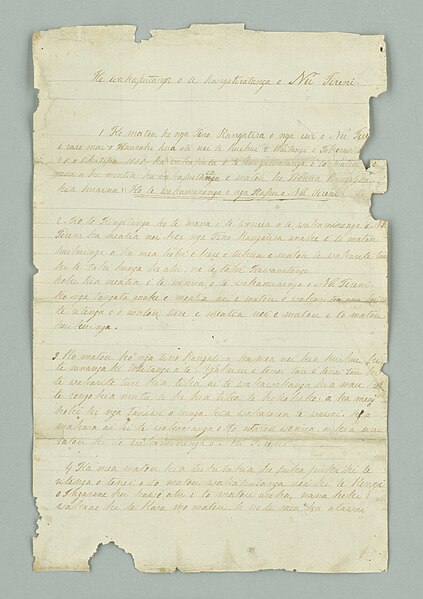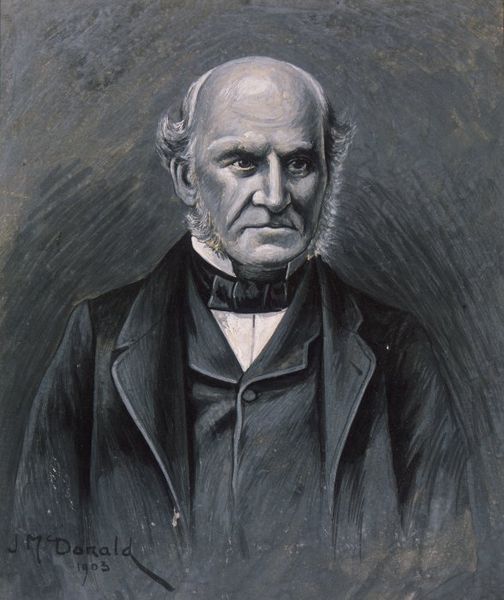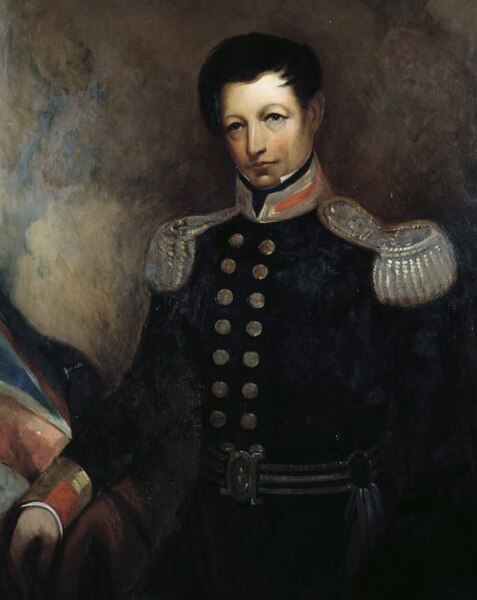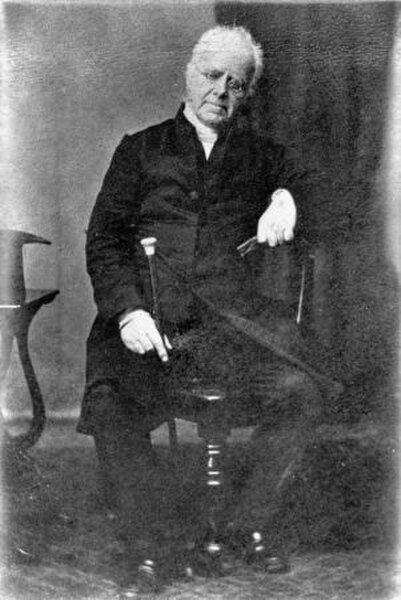Tino rangatiratanga is a Māori language term that translates literally to 'highest chieftainship' or 'unqualified chieftainship', but is also translated as "self-determination", "sovereignty" and "absolute sovereignty". The very translation of tino rangatiratanga is important to New Zealand politics, as it is used in the Māori version of the Treaty of Waitangi to express "full exclusive and undisturbed possession" over Māori-owned lands and property, but different translations have drastically different implications for the relationship between the 1840 signatories: the British Crown and the Māori chiefs (rangatira).
The Declaration of Independence of the United Tribes of New Zealand, made to the British Resident in New Zealand on 28 October 1835. The phrase tino rangatiratanga can be seen in the first line of section one.
Tino rangatiratanga is important to Māori and New Zealand culture and politics. Here the phrase is highlighted as it appears in the printed copies of the Treaty of Waitangi, as part of article two (ko te tuarua).
The Treaty of Waitangi, sometimes referred to as Te Tiriti, is a document of central importance to the history of New Zealand, its constitution, and its national mythos. It has played a major role in the treatment of the Māori people in New Zealand by successive governments and the wider population, something that has been especially prominent from the late 20th century. The treaty document is an agreement, not a treaty as recognised in international law, and has no independent legal status, being legally effective only to the extent it is recognised in various statutes. It was first signed on 6 February 1840 by Captain William Hobson as consul for the British Crown and by Māori chiefs from the North Island of New Zealand.
The Waitangi Sheet of the Treaty of Waitangi
James Busby, British Resident in New Zealand. He drafted a document known as the Declaration of the Independence of New Zealand.
Captain William Hobson
Rev Henry Williams, who translated the treaty into Māori with the help of his son Edward Marsh Williams.






